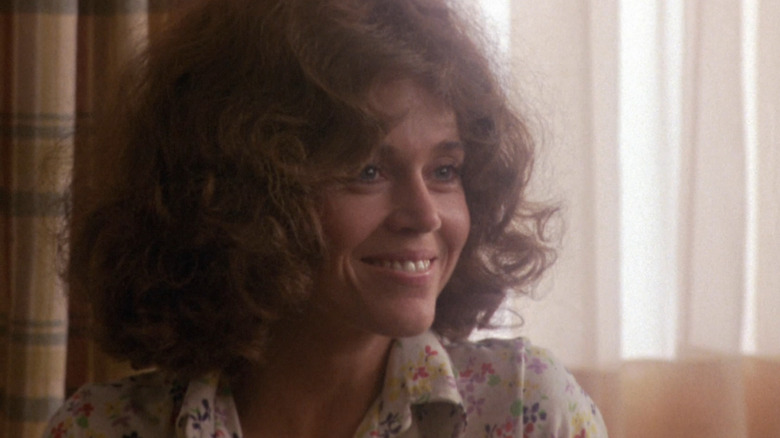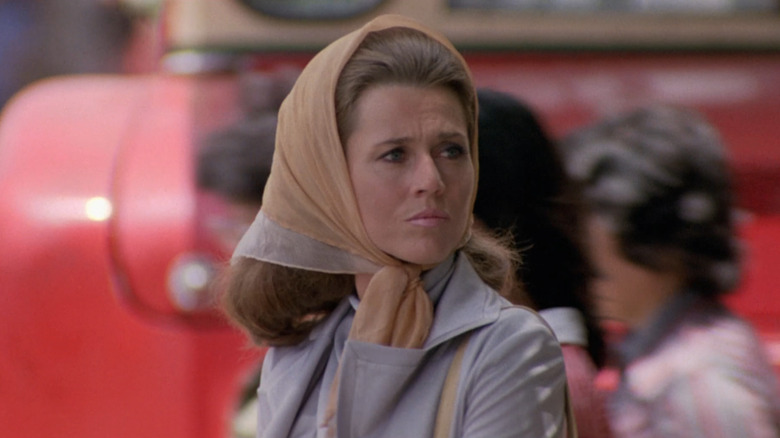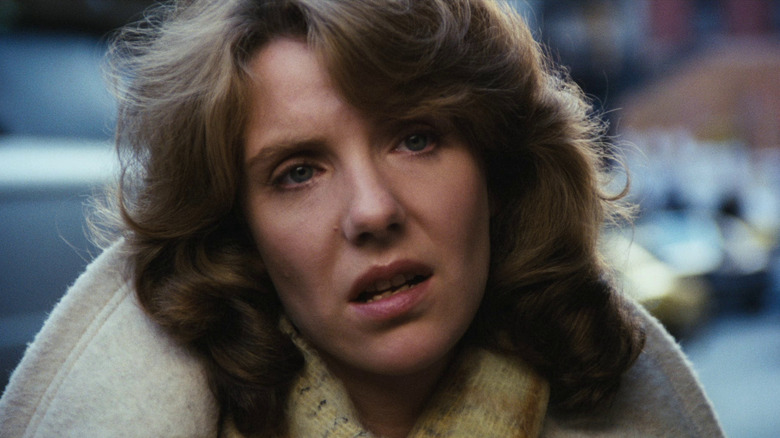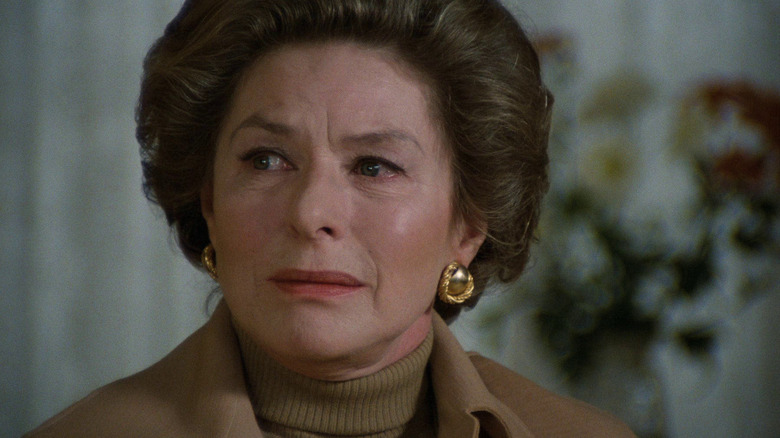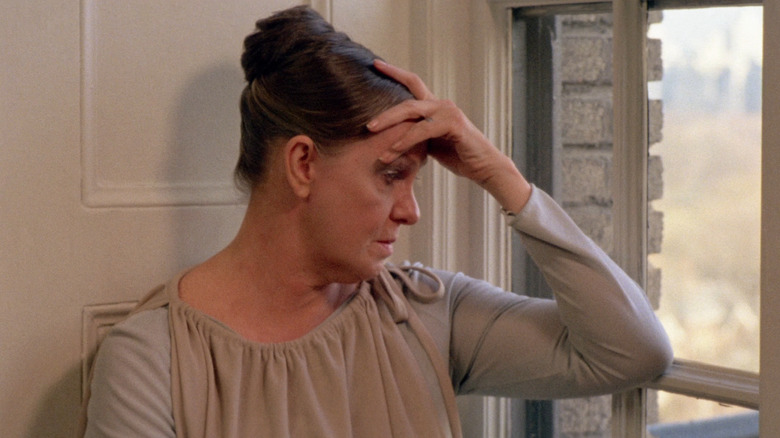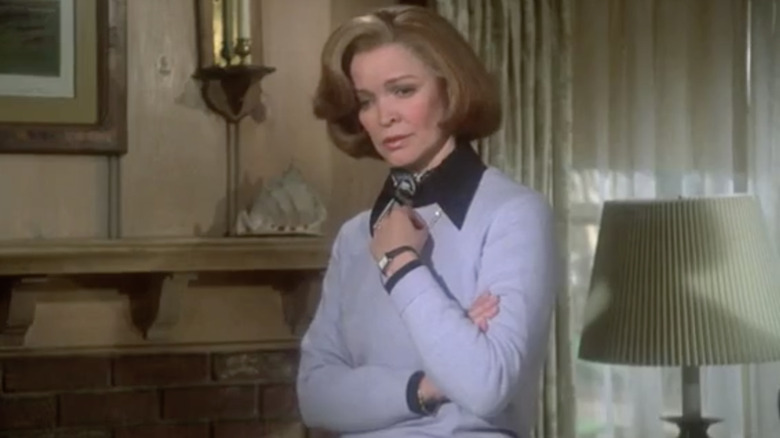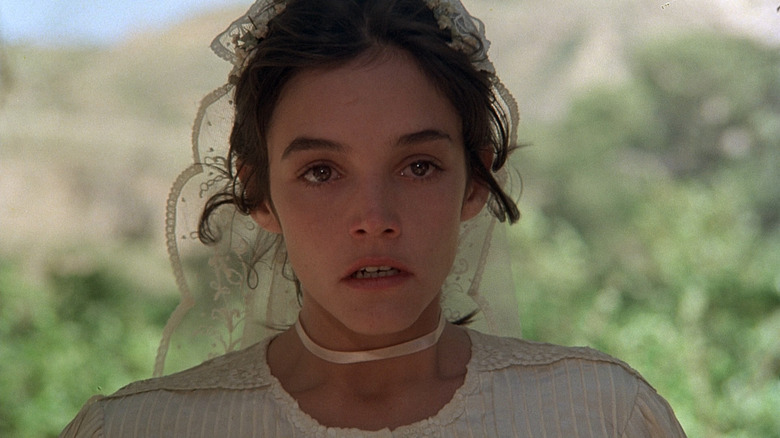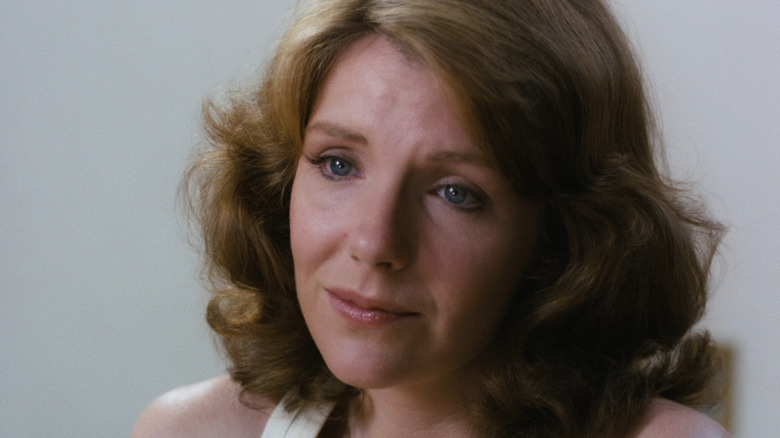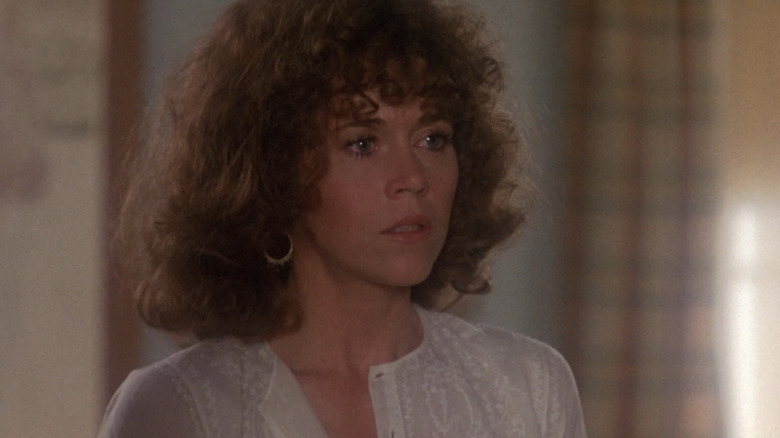Best Actress At The 1979 Oscars Is One Of The Most Underrated Categories Of All Time
(Welcome to Did They Get It Right?, a series where we look at Oscars categories from yesteryear and examine whether the Academy's winners stand the test of time.)
On a completely anecdotal level, the category that generates the most interest at the Academy Awards is no longer Best Picture. Instead, I think that honor has been passed over to Best Actress. This shift occurred for several different reasons. Hollywood is still a male-dominated industry, and Best Actress generally ends up being the most high profile award won by a woman. Then there's stan culture. Despite their irritating abrasiveness, they care deeply about these particular women and want to see them rewarded. I'm not wild about people saying someone deserves an Oscar because she "ate" or "slayed," but you can't discount the passion.
More than anything though, this increased interest in Best Actress just comes from a desire for more great roles in film for women. There is a long held feeling that Hollywood doesn't have good roles for women, and if the Oscars are able to find and recognize those actually good parts, then maybe there will be more. I think that old adage about women's roles in film is partially true, but not entirely. Great roles for women on film have always been there. Their consistency is the issue, ebbing and flowing with the era.
Just take a look at the Best Actress category from the 1979 Oscars. This was 45 years ago, and all five nominees would be triumphs for women in film this year. With Jill Clayburgh in "An Unmarried Woman," Ingrid Bergman in "Autumn Sonata," Geraldine Page in "Interiors," Ellen Burstyn in "Same Time, Next Year," and Jane Fonda, the winner for "Coming Home," you had one of the finest Best Actress slates of all time.
Jane Fonda wins again
When we think about the stars of the New Hollywood, I think our mind gravitates towards the men. You had the likes of Jack Nicholson, Al Pacino, Dustin Hoffman, and Robert De Niro changing what Hollywood's idea of a leading man was. But the women of the New Hollywood were just as vital to reshaping what we thought movies could portray on screen. These were dynamic, complicated people coping with the rapidly changing world everyone was living in. From Glenda Jackson to Faye Dunaway to Barbra Streisand to Gena Rowlands, filmmakers had this cavalcade of phenomenal actors taking on serious parts that an actor of any gender would want.
In terms of the Oscars, one person stood tallest: Jane Fonda. From the 1970 Oscars to the '82 ceremony, Fonda was nominated for six Academy Awards, five for lead and once for supporting. Her first win came in 1972 for her astounding performance in Alan J. Pakula's paranoia thriller "Klute." Her second win came this year for "Coming Home," in which she plays a volunteer at the VA office who is married to one man who goes off to Vietnam (Bruce Dern) and begins an affair with a wounded soldier who has returned (Jon Voight).
"Coming Home" was firmly running in second place that year to "The Deer Hunter" for Best Picture and picked up Best Actor (Voight), Actress, and Original Screenplay. Fonda had been a fervent anti-war activist during the Vietnam War, which caused much of the U.S. and media to treat her as a pariah. Now several years removed from that time — in a story directly addressing the traumas of that war — her stance was vindicated without being hectoring. Her work in "Coming Home" is purely humane, and Fonda was a worthy winner this year.
The case for Jill Clayburgh
I think Jane Fonda was always going to win Best Actress this year. She took home the Golden Globe and LA Film Critics awards for her performance, and the love for Jon Voight and the film itself certainly helped boost her standing. However, part of me feels a little conflicted about her win because she already won one so soon before. In fact, three of the nominees had won Oscars in the 1970s, with Ellen Burstyn winning Best Actress for "Alice Doesn't Live Here Anymore" and Ingrid Bergman winning her third for "Murder on the Orient Express." A few years after this, Geraldine Page finally won her Oscar (after seven nominations) for "The Trip to Bountiful." That means the only person in this category who never won was Jill Clayburgh.
And if you were to give her an Academy Award, this would be the performance to do it for. Her turn in Paul Mazursky's "An Unmarried Woman" isn't just the signature performance of Clayburgh's career, which earned her the Best Actress prize at Cannes. I'd argue it's one of the signature performances of 1970s U.S. cinema period. Playing a woman with a teenage daughter coping with a recent divorce after many years of marriage, this character gets to go through so many of the highs and lows of just existing as a human being out in the world. We see her wildest moments as well as her bleakest ones while she contends with sex, love, trust, and happiness. Clayburgh imbues this woman with all the complexities that a person deserves to have examined on film, and the result is mesmerizing. She would never get a role this juicy again (few do), so this was really the Academy's only real chance to award her. They didn't.
The case for Ingrid Bergman
Ingrid Bergman is a true legend of cinema. Few actors truly know the power that their face in a close-up can have on an audience better than her. And "Autumn Sonata" may very well be her best performance in her illustrious career, and it was her last, having had to take a step back from the business due to a battle with cancer. Despite being a Swedish cinema legend, she had never before worked with Sweden's most esteemed filmmaker, Ingmar Bergman. (No, they aren't related.) "Autumn Sonata" makes you wish that we had seen decades of work between them.
Even though she'd be incredibly deserving, I don't think Ingrid Bergman was ever going to win Best Actress this year. For one, she was already a three time Oscar winner. Only Katharine Hepburn has more than her. The Academy will shower someone with nominations, but they're far stingier with wins. Bergman also had to deal with the unfortunate barrier that is giving a performance not in English. Even though the 1970s were probably the best decade about recognizing international films at the Oscars, they still rarely won the awards they were nominated for. The nomination was the award, even for someone already adored by the Academy for over 30 years.
You might think they'd be able to craft a legacy Oscar narrative for Bergman, especially because it seemed fairly certain that "Autumn Sonata" was going to be her last film ever. However, they used that tactic just four years earlier when she won Best Supporting Actress for "Murder on the Orient Express." Had the voters been clairvoyant, I wonder if they'd resist that win and wait for "Autumn Sonata." I'd reckon they would, and personally, I'd like Madeline Kahn to win that year for "Blazing Saddles."
The case for Geraldine Page
We go from actual Ingmar Bergman to straight-up homage to Ingmar Bergman. It's a little difficult to look back at the career of Woody Allen given the man himself, but you cannot deny the fact that this guy had such a dramatic impact on U.S. cinema when he was at the peak of his powers. Though we don't really talk about it much now, "Interiors" was a big deal when it was released back in 1978. Not because it was a blockbuster phenomenon or anything like that, but this was the first time Allen had made a movie that was purely a drama. The previous year's "Annie Hall" had its dramatic moments, but that was still a romantic comedy. "Interiors" is pure, bleak, Bergman-esque drama. Allen was leveling up.
Geraldine Page plays the suicidal matriarch of a family whose husband has decided to move out of the house. This is a woman with a career and multiple adult children whose world is unexpectedly thrown upside down. It's a heartbreaking performance. This was Page's sixth nomination going all the way back to 1953's "Hondo," yet she had never won. She very much is the heart and soul of "Interiors," but that film is such an ensemble piece. Diane Keaton, E.G. Marshall, Kristin Griffith, Mary Beth Hurt, Sam Waterston, and the Oscar-nominated Maureen Stapleton all are working in concert with Page and each other, so much so that singling out one to such a degree that they win a leading acting Oscar is a little tough. In fact, other groups categorized Page in the supporting races, which certainly helped her win the BAFTA for her performance. Geraldine Page would win her Oscar seven years later for "The Trip to Bountiful." Legacy Oscars can be so reliable.
The case for Ellen Burstyn
We will never see the vote totals for these awards, but if I had to guess who was running in fifth place for Best Actress in 1979, it would be Ellen Burstyn for her performance in "Same Time, Next Year." That is not to disparage her performance at all. As is usually the case with Burstyn, she approaches her work with a level of authenticity and energy that few other actors of any generation can match. Like Jane Fonda, Burstyn was absolutely owning the '70s, and this marked her fourth Academy Award nomination of the decade.
Her problem is the film itself. "Same Time, Next Year" is a fine adaptation of a fine play about two married people who agree to engage in an affair together one day a year for over 20 years. The comedy isn't crackling, nor is the drama all that affectng. It's a pleasant couple of hours for Burstyn and Alan Alda to have some nice chemistry in what is essentially a two-hander. Outside the two leads, there's very little great cinema happening here.
Burstyn was four years removed from winning this award for "Alice Doesn't Live Here Anymore," and justifying giving her a second Oscar for a film as trivial — to be ungenerous for a second — as this would be highly unusual for the Academy. Her other two previous nominations were for "The Last Picture Show" and "The Exorcist." These are all heavyweight titles and some of the best films ever made. "Same Time, Next Year" isn't that. Certainly worthy of that final slot nomination, but that's about as far as I could go too. It's the one nominee I couldn't justify giving the award to.
Who was left out
Another major actor who had already won two Best Actress Oscars was Glenda Jackson, who was Golden Globe nominated for her performance in the film "Stevie." She would also win the National Board of Review and New York Film Critics Circle awards for her performance. You would think this would be a major snub at the Oscars then, right? Well, here's the thing. She won the NBR two years after these Oscars and the NYFCC award a full three years later. "Stevie" played for three weeks in Los Angeles in 1978, and its distributor, First Artists, decided not to distribute the film past that. In 1981, The Samuel Goldwyn Company picked it up and put it out in New York and other places in the U.S. With a release strategy like that, all you're doing is shooting yourself in the foot for your Oscars chances.
Also in contention was Brooke Adams for her performance in Terrence Malick's sophomore feature "Days of Heaven," which was nominated for four awards and won Best Cinematography. Personally, my inclination would be to push Adams not for that film but for "Invasion of the Body Snatchers," which came out the same year, but the Academy would never go for that. If they felt like celebrating the independent scene, they could've gone with Melanie Mayron for her fantastic work in "Girlfriends." Or the Academy could've swung entirely the other way for something populist and chosen Olivia Newton-John for "Grease," the highest grossing film of the year. I don't doubt that if today's awards watchers' mindset was around back then, there'd be a big swell to get Jamie Lee Curtis in for "Halloween." This year had a plethora of worthy Best Actress contenders, but it's tough to quibble with the five nominees.
If I picked the winner
I may have played my hand a little early on this one, but my winner for Best Actress at the 1979 Academy Awards would not have been Jane Fonda. In other years where the competition wasn't nearly as stiff, Fonda would be a totally worthy winner I'd be happy about. Given the fact that I am personally not burdened by whether or not somebody has won too many times, I considered giving it to Ingrid Bergman, but in the end, I couldn't bypass the pure humanity in Jill Clayburgh's marvelous turn in "An Unmarried Woman."
From her dancing across her apartment in the film's opening to the final moments of her traversing New York with a large painting by herself, Clayburgh gets to convey the full breadth of a human being without resorting to any typical dramatic clichés. Her big powerhouse scene, the one they'd show as the clip at the ceremony (well, if they showed clips this year, which they didn't), would undoubtedly be the scene where she finds out her husband has been cheating on her, but it's her scene partner that does all the weeping and monologuing. Clayburgh gives us a near silent reaction of confusion, heartbreak, anger, embarrassment, and so much more, and she owns the moment.
Her run as a movie star wasn't terribly long. By the early to mid-1980s, her time as a leading lady in great films had come to a close. Part of that was due to the abandonment of the New Hollywood ethos, but I wonder if she did take home that Academy Award if her career could have sustained that high level for longer. Jill Clayburgh was the only one of these five women to never win, and historically, that was a mistake.
Make your movies available
Of course, you could go out and watch these five films and choose a different winner. In fact, you should do that, as these five women all deserve your attention for their terrific work. Part of the reason I don't think this slate gets talked about as one of the greats in Oscars history as much simply has to do with the fact that these movies aren't nearly as available to a modern audience as they should be.
If you were to fire up your Apple TV or whatever to watch "Coming Home," "An Unmarried Woman," or "Same Time, Next Year," you wouldn't be able to do so. Not only are they unavailable on any streaming service, they are not even available for purchase or rental. "An Unmarried Woman" has a Blu-ray from Criterion, and if you were to order it from Amazon right now, there's a shipping wait of one to two months. Kino Lorber's Blu-ray for "Coming Home" is out of print (though a reissued DVD from them will be available October 3, 2023). "Same Time, Next Year" hasn't even made it to Blu-ray period, and its DVD has long been out of print.
These aren't obscure independent art films. These are films made by major Hollywood studios like 20th Century Fox and Universal. Ironically, Ingmar Bergman's "Autumn Sonata" is the most widely available and easily accessible of the bunch. In the age of streaming, it's important to remember that even though it feels you can watch any film at the touch of a button, that doesn't mean it's true. So, you will have to put in a little effort to watch all five of these movies, but the experience will be well worth your effort.
